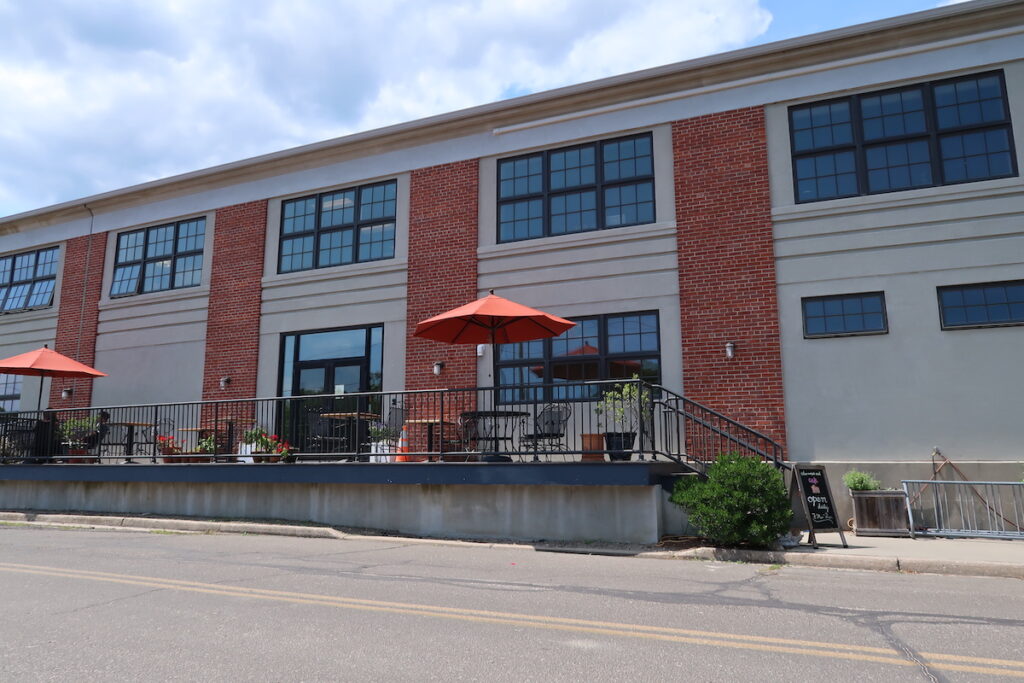Town attempting to amend special events law, create new winery definition
The Town Board’s attempt to pass two separate pieces of legislation dictating the use of wineries has proven to be a tricky task.
The already controversial special events law draft was expected to be the focus of a Tuesday night public hearing, but the issue became muddied by a separate proposed policy change amending the town’s legal definition of a winery.
Critics argued that the two pieces of legislation should be combined.
“It important when we look at the proposed law today to realize it’s only half a law,” said Sal Diliberto of the Long Island Wine Council. “We are being asked to look at a law that incorporates another proposed law, which is not here today.”
The special events law seeks to give the town more control over events held at wineries and other properties. It would require a permit for any gathering that exceeds a building’s occupancy or parking capacity or is otherwise prohibited by the property’s zoning. A permit would also be required for events involving the closing of a public street, the use of amplified sound, the sale of food or merchandise, the placement of portable toilets and a number of other circumstances.
At the same time, the town is considering revisiting the code language on what constitutes a winery and what activities are permitted there.
During their morning work session board members requested clarification from the code committee on town zoning polices on allowable uses for wineries and the penalties for violations.
Current regulations state that wineries should primarily sell products made from grapes grown on site and have a minimum of 10 acres dedicated to vineyards or other agricultural purposes.
Supervisor Scott Russell said the goal of redefining the usage language is to expand what’s considered normal business practice and thereby allow vineyards to hold events such as weddings without a special events permit.
“We don’t want people to think they need a special events permit when they have a four-piece band come in on a Saturday and end up having hundreds of people showing up,” Mr. Russell said after the meeting. “That is not a special event. That is just a good day.”
The special events law and the winery use review come in response to residents’ complaints about such events — most notably at Vineyard 48 in Cutchogue — and concern about the town’s options in addressing code violations.
Some critics said separating the two pieces of legislation would have unwelcome consequences for businesses other than wineries.
“In theory, the bill would include yard sales and lemonade stands as special events,” said Marilyn Marks, owner of Shorecrest Bed & Breakfast in Southold. “If the board does not change the legislation regarding custom-driven events like weddings, it will be virtually impossible for [B&B] owners to run those types of events. It needs to be clearer.”
The draft states that the permit requirement does not apply to occasional private events held on residential properties.
This not the first time the proposed law has been called confusing. In the past, critics said the town failed to clearly define what qualifies as a special event, forcing organizers of routine events to undergo burdensome permit procedures.
A previous version of the code change was shelved last year when representatives of the state Department of Agriculture and Markets, which has the power to overturn local laws it believes curtail agricultural activities, found the original events draft did indeed place undue restrictions on farming. This week town attorney Martin Finnegan said that state agency supports the revised proposal.
The less restrictive draft continues to draw fire from winery operators who say it would limit the events they could sponsor and thereby decrease the area’s agritourism business.
“This is certainly better than the draft you had before,” said Steve Bate, executive director of the Long Island Wine Council. “We still have concerns. We hope we can come up with some kind of compromise that allows us flexibility.”
Mr. Bate requested omitting a piece of the legislation that would prevent property owners from acquiring a new special events permit if they are the subject of an unresolved violation action.
He also asked that applications for special events be reviewed within 30 days to assure that event scan be properly marketed, and removing the $250 fee for applying submitted less than 60 days in advance of an event.
“That is an exorbitant fee for a small winery should an opportunity come up in less than 60 days,” he said. “It’s unfair.”
The board tabled the special events law.








